The flavor and taste of Jamaica Blue Mountain No. 1 Coffee introduces the authentic Blue Mountain Coffee Price Story of Clifton Manor
Jamaican Blue Mountain coffee beans have a high reputation, low yield and a long history. It can be said that they have heard of Blue Mountain Coffee even if they have never drunk boutique coffee. Today, Qianjie Coffee will introduce the four major estates in Jamaica that produce Blue Mountain Coffee.
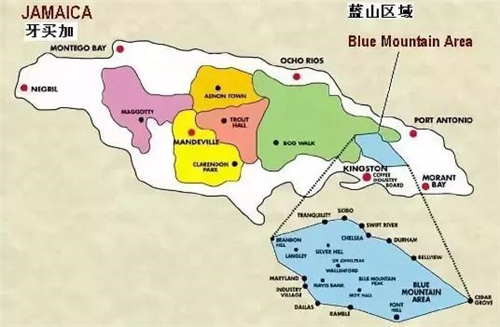
History of Jamaican Blue Mountain Coffee the history of Jamaican coffee dates back to the 18th century, when King Louis XV of France ordered the cultivation of coffee in Jamaica in 1717. In the mid-1920s, the Governor of Jamaica, Sir Nicholas Lawes, imported Arabica seeds from Martinique and began to popularize them in the St. Andrew. Coffee trees are introduced to Jamaica and coffee is grown in the Blue Mountains, which is divided into high-altitude Jamaican Blue Mountain Coffee, Alpine Coffee and Jamaican Coffee. Different grades also determine different prices.
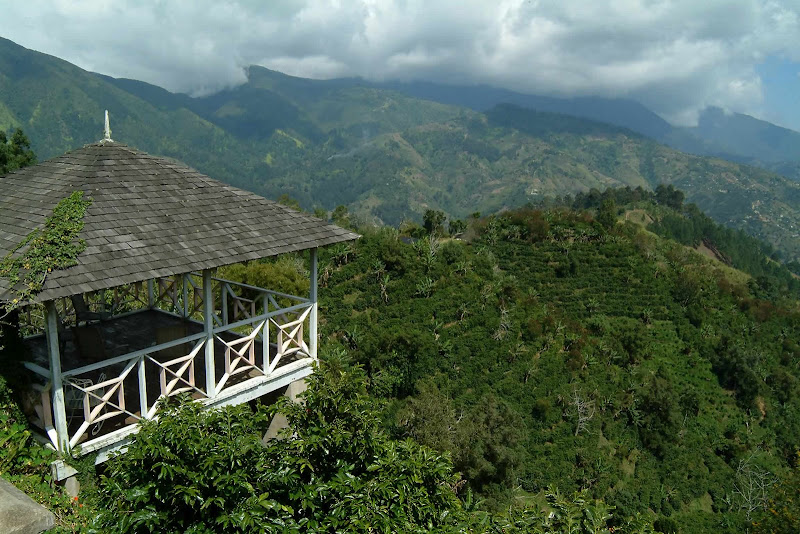
The Blue Mountains are located in the eastern part of the island of Jamaica, hence its name because it is surrounded by the Caribbean Sea. On clear days, the sun shines directly on the blue sea, and the peaks reflect the bright blue light of the sea. The highest peak of Blue Mountain is 2256 meters above sea level (2256m above sea level, coffee can only be grown below 1700m, above is protected forest), it is the highest peak in the Caribbean and a famous tourist attraction. It is located in the coffee belt, with fertile volcanic soil, fresh air, no pollution, humid climate, foggy and rainy all the year round, with an average precipitation of 1980 mm and a temperature of about 27 degrees. This climate has created the world-famous Jamaican Blue Mountain Coffee and the highest price coffee in the world. Only growing Blue Mountain Coffee above 800m above sea level is authentic Blue Mountain Coffee. The Blue Mountain Coffee on the front street coffee bean list is 1310 meters above sea level and comes from Clifton Manor. Authentic Blue Mountain coffee beans are currently on the market using water washing, but it will soon be more than just water washing (explained below). After manual picking of coffee cherries, preliminary screening will be carried out first, unripe and overripe coffee cherries will be removed before peeling, and ensure that they will be completed within 12 hours, followed by traditional washing and fermentation, and then moved to the cement platform for sun drying. After a long time of slow sun drying, the coffee flavor will be strengthened. Dry until the moisture content is 11%-13%, the bag is placed in the warehouse and cooked, the temperature of the warehouse is controlled at 24-25 ℃ and the humidity is controlled by a dehumidifier, and the flavor is stable for 2 to 3 months before shipment.
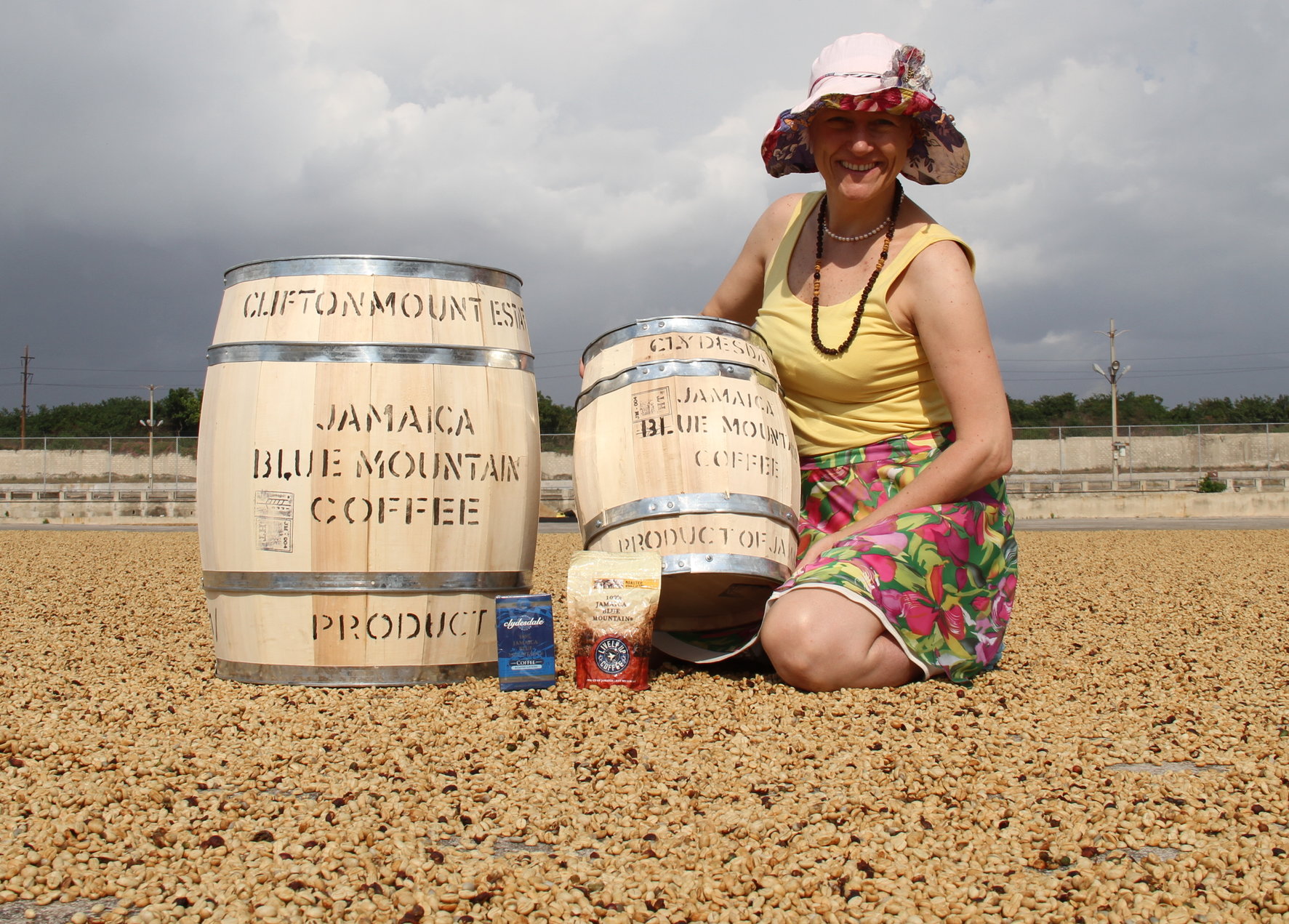
When customers place orders, they shell at low temperature, polish, blow off silver dust, and manually screen defective beans such as broken beans, abnormal color, mold infection, etc., each skilled worker can only select about 75 pounds of raw beans a day. Each workstation transports raw coffee beans in wooden pots to avoid fragmentation or other process defects, and then sealed in unique barrel packaging from the Blue Mountains of Jamaica. The Jamaican coffee shop Coffee Industry Board of Jamaica (CIB) Regulatory Section will check whether the flavor of each batch of coffee meets the standard before being exported by air. According to CIB, only coffee produced in Jamaica Blue Mountain above 666m can be called Jamaican Blue Mountain Coffee, coffee produced in Jamaica Blue Mountain area below 666m is called [Jamaican Alpine Coffee], and coffee produced in Jamaican Blue Mountain area below 666m is called [Jamaican Alpine Coffee]. Its grade is divided into NO.1, NO.2, NO.3 and hand-selected PB according to bean size. Among them, the basic standard of blue mountain raw beans of NO.1 is beans with more than 17 mesh, defect rate less than 3%, moisture content about 13%, and so on.
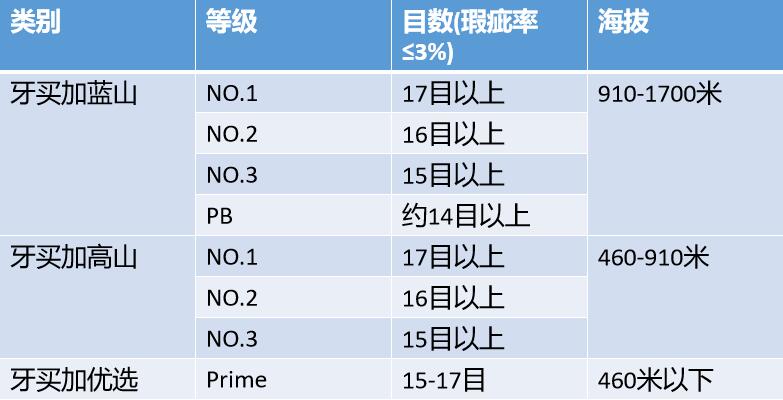
Jamaica was the last country to transport coffee in wooden barrels. Only through this series of stringent standards set by the Jamaican Coffee Industry Authority (C. I. B) can coffee be awarded by the government and officially known as "Blue Mountain". The four major estates of Jamaica Blue Mountain are Clifton Manor, Stoney Manor, Golden Cup Manor and RWS Coffee Manor. Clifton Manor is the Blue Mountain Manor with only the symbol of "tropical rainforest" in Jamaica. The Blue Mountain beans of Qianjie Coffee are selected from this manor with a perfect balance of acidity, mellow thickness and aroma. The manor has a history of 200 years.
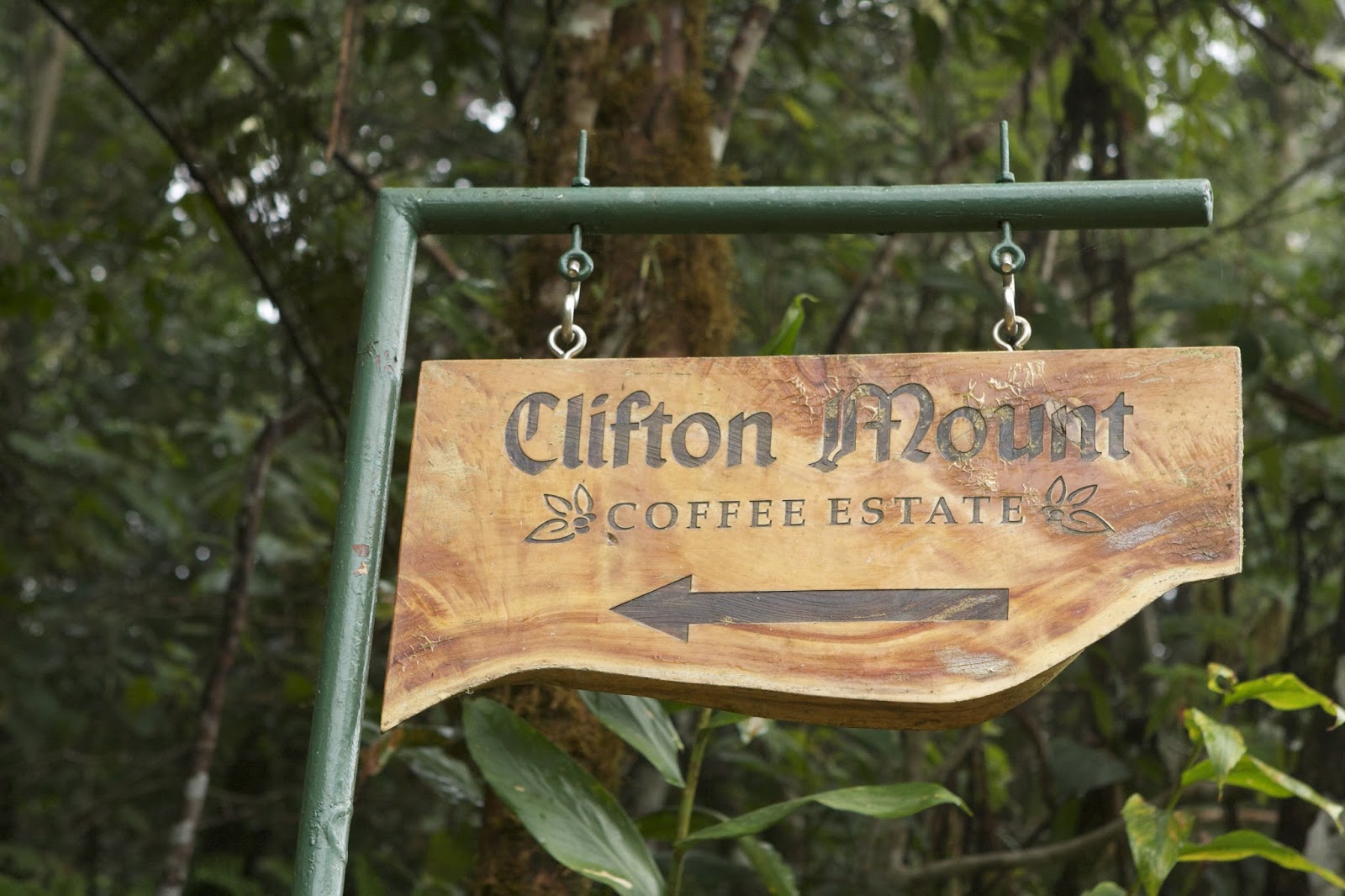
Stoney Manor is more cooperation with Japanese companies, the domestic popularity is not high, the manor history is only 80 years. Therefore, it is not as well-known as Clifton Manor in China, and it was later acquired by JCC. Golden Cup Manor Gold Cup has a shorter history of only 20 years, but it is actually a merger of two 100-year-old estates to operate the estate with more advanced management technology. Gold Cup currently has two brands, Amber Estate and BMCP from the Blue Mountain Coffee Processors LTD processing plant, and the independent Amber Estate is its top flagship brand. RWS Coffee Manor is a merger of three hundred-year-old estates, which is also for the development of Blue Mountain Coffee. RSW refers to the three estates of its Resource, Sherwood Forest and Whitfield Hall estates. Clifton Manor can be said to be the most innovative manor in the Blue Mountain area, which launched the sun-cured version of Blue Mountain No. 1 Coffee and Blue Mountain Rose Summer Coffee in 2019-20. Prior to this, all the coffee sold in Lanshan were washed tin cards. Front Street Coffee Blue Mountain Farm, Jamaica: Clifton Farm landowner: sharp Family The Sharp family Certificate: tropical Rain Forest Certified location: Newcastle area: 250acre Coffee acreage: 180acre average altitude: 4300 feet (1310.64 m) treatment: washing varieties: 100% Arabica Iron pickup
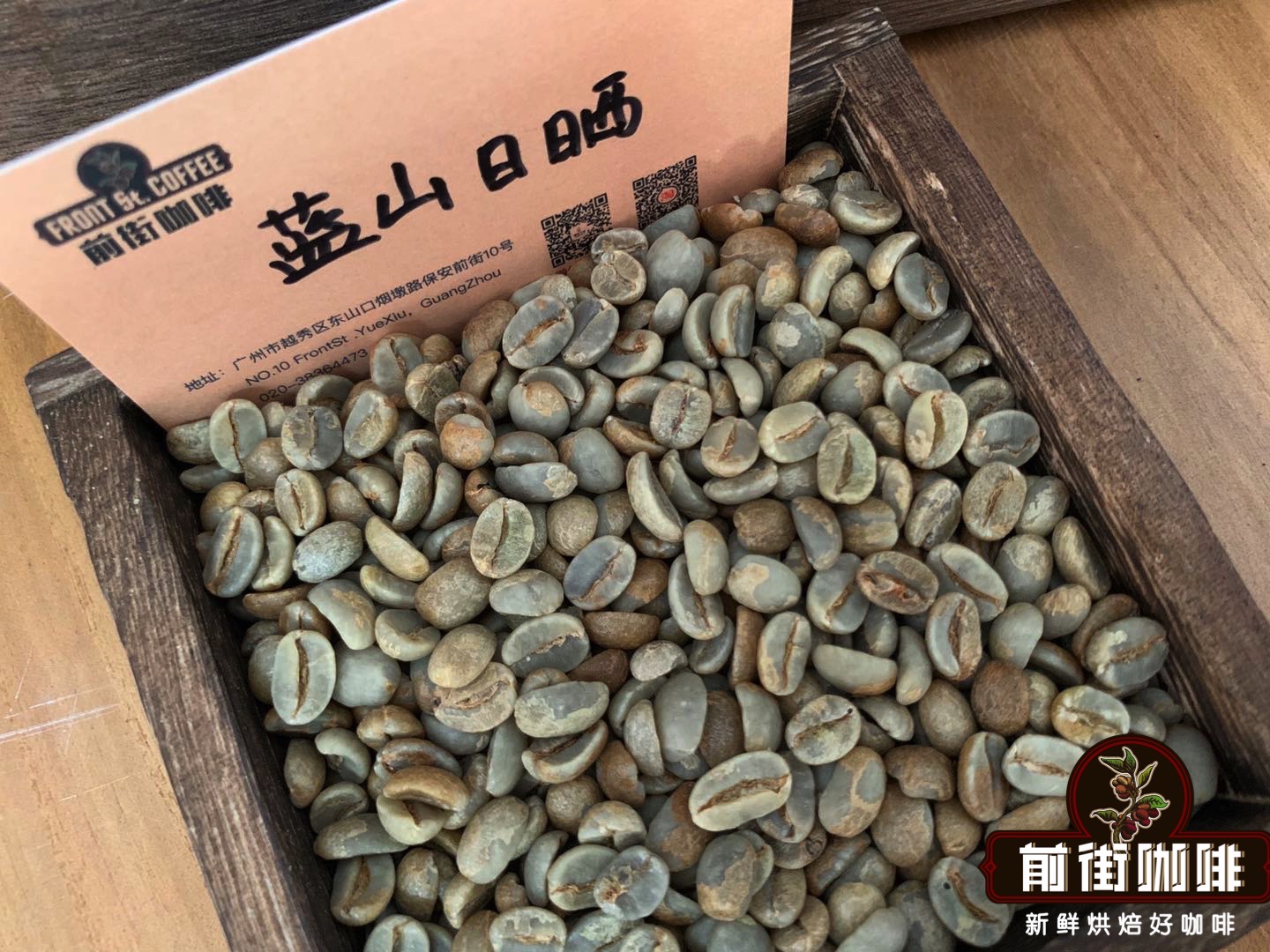
Real Jamaican Blue Mountain Coffee is certified the Jamaican government used to insist that all Blue Mountain coffee is roasted in Jamaica to ensure that the quality remains the same. In fact, baking is a fine art, and it takes experience, training and expensive equipment to do a good job. From the consumer's point of view, coffee beans should be obtained and drunk immediately after baking. Coffee roasting in Jamaica is unlikely to meet this requirement. Now, raw coffee beans from Jamaica can be exported. Qianjie coffee has come back from its origin into the Blue Mountains of Jamaica. At present, the Jamaican Coffee Bureau can issue certificates for all exported Blue Mountain coffee.
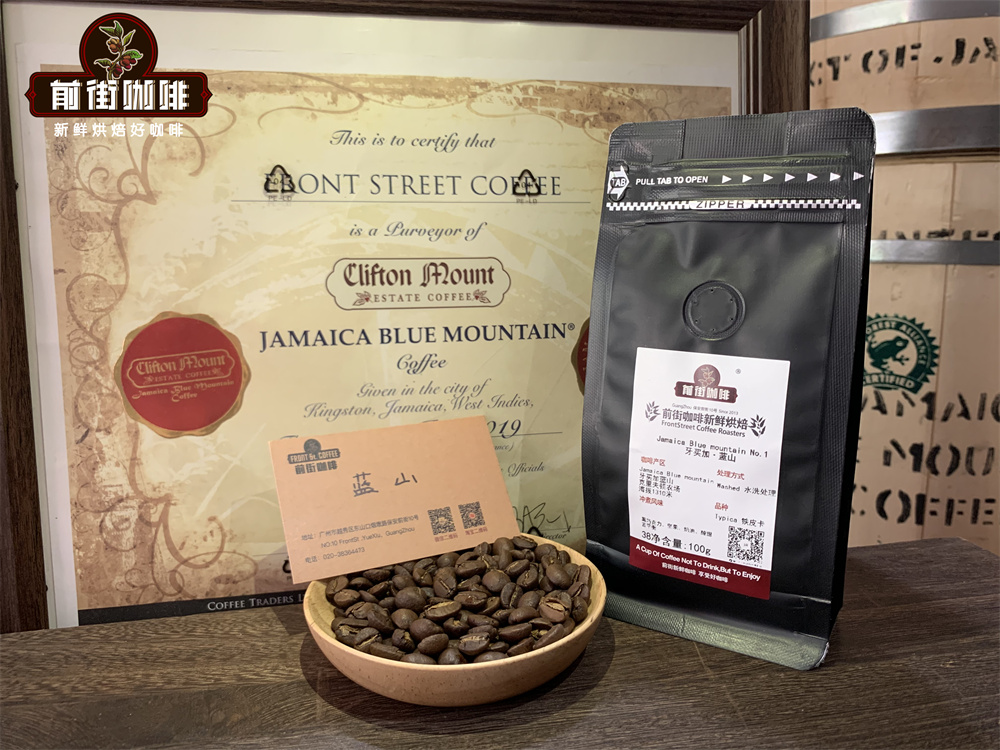
There are three kinds of certificates: (1) the certificate of quality issued by the Jamaican Coffee Agency (2) the authorized sales certificate issued by the Blue Mountain Coffee manufacturer. (blue Mountain Coffee is distributed by 4 Jamaican government-licensed processing producers and exported by 16 licensed exporters.) (3) the certificate of quality of Jamaican Blue Mountain Coffee of Origin indicates the time and quantity. The Jamaica Coffee Bureau randomly selects a package from the Blue Mountain Coffee for inspection, and issues a certificate if the conditions of the Blue Mountain Coffee are met. Qianjie Coffee Baking Analysis the Qianjie roaster adopted medium roasting according to the characteristics of Lanshan No. 1 coffee beans to highlight the balanced and mellow flavor of Blue Mountain. Take Yangjia 600N semi-direct fire roaster and 500g raw beans as an example. The furnace temperature is 165℃, the firepower is 130mm, the throttle is set up 3; the temperature recovery point is 1pm / 39th / 32 ", when the furnace temperature is 95.8℃, the firepower is unchanged; the blower door is adjusted to 4pm in 3 minutes, and the firepower is increased to 140min. When the furnace temperature is 153.3 ℃, the bean table turns yellow, and the smell of grass disappears completely, and enters the dehydration stage. When 8 minutes after the explosion, the smell of toast obviously changes to the smell of coffee, which can be defined as a prelude to an explosion. At this time, you should listen clearly to the sound of an explosion point, start to explode until 10 minutes after the explosion, develop 3 minutes after an explosion, and drop beans for 198.5 ℃.
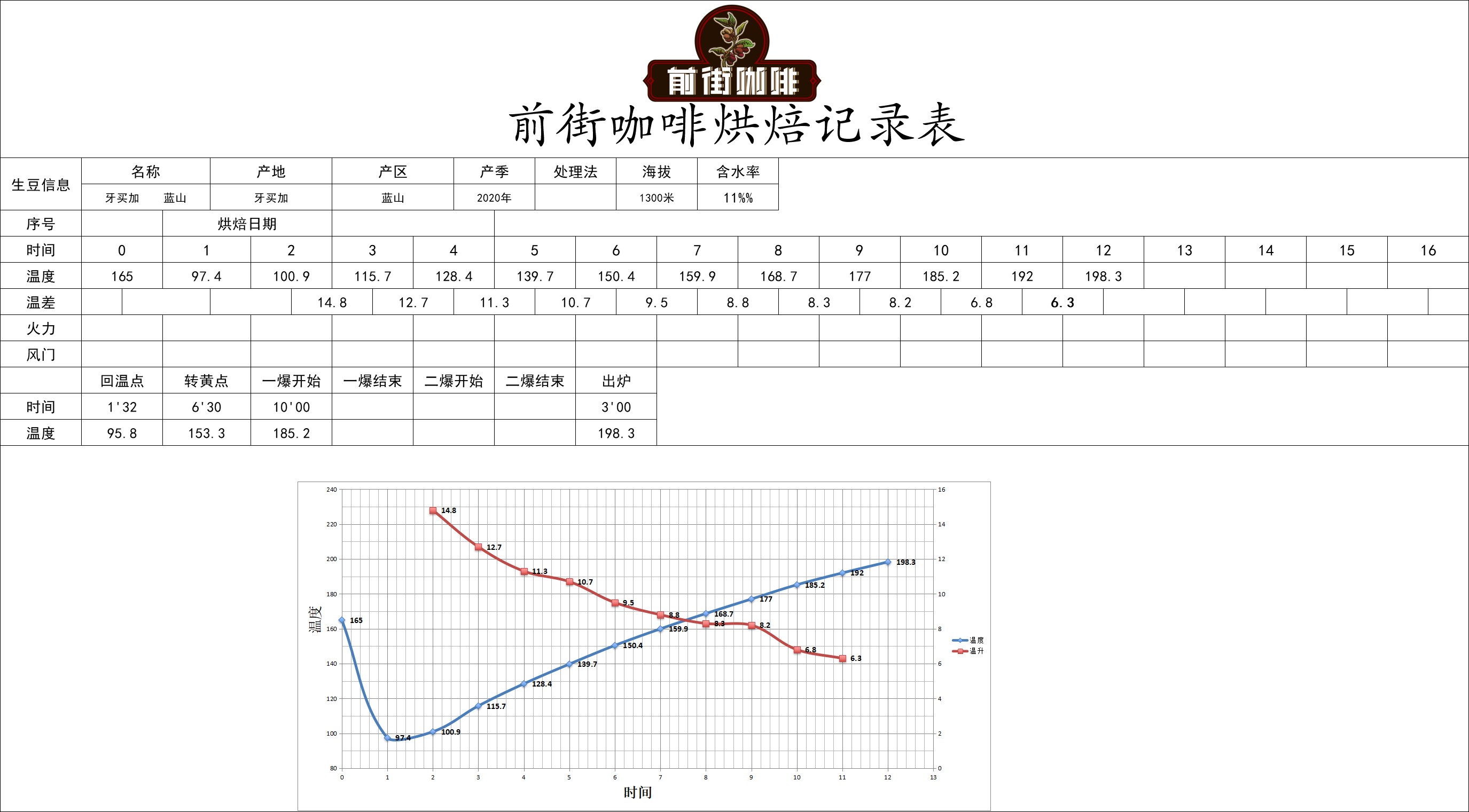
Qianjie coffee brewing recommended parameters: 15g powder, water temperature 86 ℃, water powder ratio 1:15, coarse grinding (Chinese standard 20 sieve pass rate 65%) filter cup generally choose these, V60 filter cup, kalita fan-shaped and Kono, Qianjie coffee is mainly brewed with Kono filter cup for display. Qianjie Coffee chooses Kono filter cup mainly because Blue Mountain Coffee chooses deep roasting, high temperature can easily lead to over-extraction, so Qianjie Coffee chooses 86 ℃ in water temperature. If V60 filter cup or other filter cup with fast flow rate is used at this temperature, it is easy to lead to insufficient extraction, while Kono has few and short ribs, which can isolate the gap between filter paper and filter cup, increase the residence time of water flow and have the function of soaking. Therefore, combining the test results of all the brewing parameters, Qianjie coffee finally chose the Kono filter cup.
At the same time, Qianjie recommends using freshly roasted coffee beans for brewing, so as to maximize the rich flavor of coffee. The coffee beans shipped in Qianjie are all roasted within 5 days, because Qianjie is well aware that the freshness of coffee beans has a great impact on the flavor. The purpose of Qianjie roasting is "freshly roasted coffee", so that every guest who places an order is the freshest coffee when he receives it. The bean cultivation period of coffee is about 4-7 days, so when the guest gets it, it is the time when the flavor is the best.

In the brewing technique, Qianjie coffee is extracted by stages, that is, three-stage water injection method. Steaming with 30g water for 30s, the first small flow was injected around the circle to 125g off water, and the second stage of water injection was continued when the liquid level was about to expose the powder layer, and the total extraction time (including steaming) was 225g.
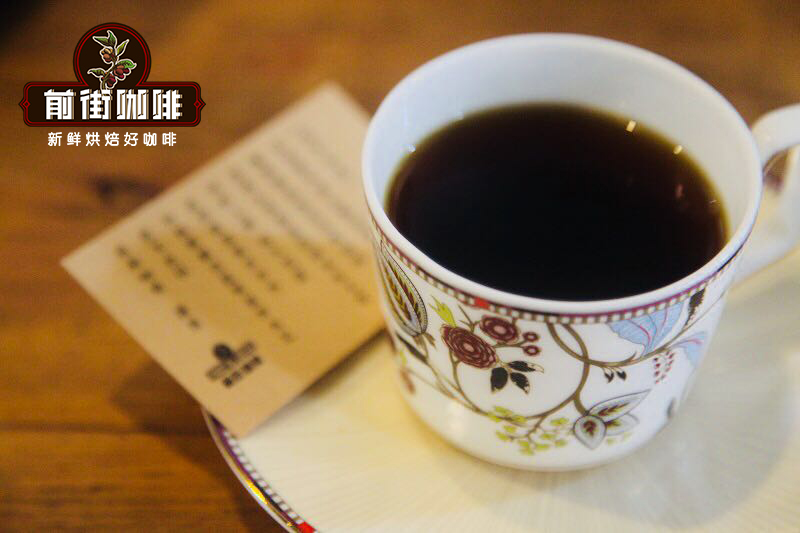
The taste of Blue Mountain Coffee is full, balanced and mellow.
The flavor of Blue Mountain Coffee: chocolate, nuts, sweet and sour balance
Professional coffee knowledge exchange more coffee bean information please follow the coffee workshop (Wechat official account cafe_style) more boutique coffee beans please add private Wechat Qianjie coffee, WeChat: kaixinguoguo0925
Important Notice :
前街咖啡 FrontStreet Coffee has moved to new addredd:
FrontStreet Coffee Address: 315,Donghua East Road,GuangZhou
Tel:020 38364473
- Prev
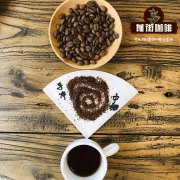
What is the taste of Jamaican Blue Mountain Coffee? what is the price of Blue Mountain Coffee?
Professional coffee knowledge exchange more coffee bean information please follow the coffee workshop (Wechat official account cafe_style) front street coffee Jamaica Blue Mountain coffee price? Do the blue mountain coffee beans of RSW Manor taste sour or bitter? Blue Mountain Coffee beans are grown within the range of cultivation stipulated by the official law of Jamaica, and the production process is also strict in the Jamaican Cafe. High-quality Blue Mountain Cafe
- Next
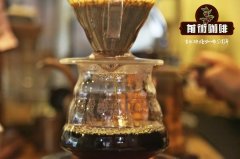
Jamaica Blue Mountain Coffee rsw: what are the characteristics and taste of Blue Mountain Coffee
Professional coffee knowledge exchange more coffee bean information please follow the coffee workshop (Wechat official account cafe_style) Blue Mountain Coffee is a high-quality Caribbean coffee, like other countries affected by natural hurricanes caused damage, seen too many damaged bean cups tested and taste like kale, every hurricane hit the year the price is always affected or even completely
Related
- Detailed explanation of Jadeite planting Land in Panamanian Jadeite Manor introduction to the grading system of Jadeite competitive bidding, Red bid, Green bid and Rose Summer
- Story of Coffee planting in Brenka region of Costa Rica Stonehenge Manor anaerobic heavy honey treatment of flavor mouth
- What's on the barrel of Blue Mountain Coffee beans?
- Can American coffee also pull flowers? How to use hot American style to pull out a good-looking pattern?
- Can you make a cold extract with coffee beans? What is the right proportion for cold-extracted coffee formula?
- Indonesian PWN Gold Mandrine Coffee Origin Features Flavor How to Chong? Mandolin coffee is American.
- A brief introduction to the flavor characteristics of Brazilian yellow bourbon coffee beans
- What is the effect of different water quality on the flavor of cold-extracted coffee? What kind of water is best for brewing coffee?
- Why do you think of Rose Summer whenever you mention Panamanian coffee?
- Introduction to the characteristics of authentic blue mountain coffee bean producing areas? What is the CIB Coffee Authority in Jamaica?

